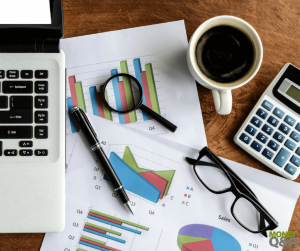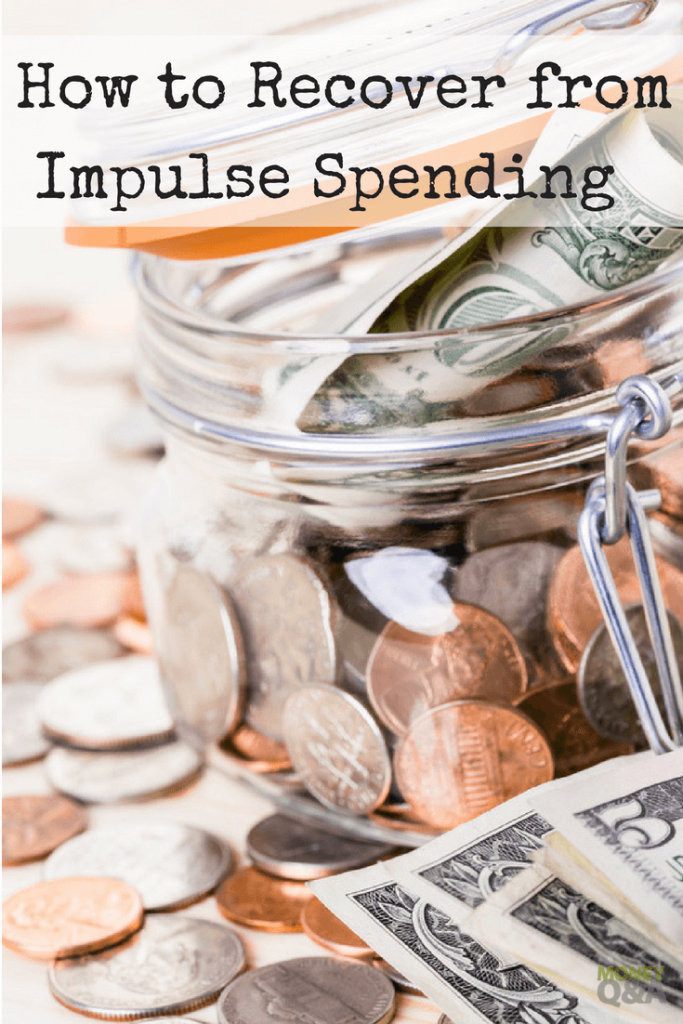
What do you do when you blow your budget? If you’re like many of us, feelings of dread give way to anxiety or even panic as you wonder how you’ll cover your credit card payments next statement period or mentally kick yourself for impulse spending that money on a comparatively frivolous shopping spree when you could have saved that money and/or invested it instead.
How to Recover from Impulse Spending
It’s okay to feel this way at first, but the best way to recover from an impulse spending hangover is to be proactive and immediately look for ways to tighten your budget and be smarter about your spending habits, rather than dwelling on mistakes. To avoid continuously spending money on stupid or unnecessary things and stabilize your financial situation, here are five actionable steps for overcoming a spending hangover
Create Small Opportunities to Save
Small victories boost morale, which can help distract you from the negative thoughts and self-frustration you might be feeling after a big splurge and impulse spending that drained your wallet. Perhaps you won’t be able to see your new debts vanish overnight, but focusing on areas in your budget where you can trim or eliminate altogether will produce little savings that, like little expenses, will add up over time.
Trick Yourself Into Saving More Money with Auto-Deposits
It’s so easy to spend money these days thanks to credit cards, aggressive advertising, in-your-face deals and promotions, and social pressure to rake in more stuff for yourself and your home. For some of us, this means that saving money is way easier said than done, and you might need to trick yourself into saving more money because empty promises to yourself and half-hearted budgeting aren’t working for you.
If that’s the case, then consider setting up auto-deposits into a general investment account (or better yet, a retirement account so you can’t access the money until several years down the line). By setting up auto-deposits, you will have to readjust your budget to accommodate less available funds coming in, but at least that money will be going towards your future financial goals instead of impulsive purchases in the present.
Unsubscribe from Promotional Emails
As mentioned previously, impulse spending is easy when all it requires is the click of a mouse or a simple swipe of a plastic card. Product advertising is evolving to become more persuasive than ever, promising you huge discounts in the headline of a promotional email or encouraging you to sign up for the store card at checkout to help you save more money on your purchase that day.
These advertising strategies are designed to almost unconsciously want to buy way more than you need (as advertising has always worked, but it’s getting more insistent and tech-savvy to drive online sales). So, the #1 thing you should do as a spending hangover kicks in is to unsubscribe from all of your favorite sellers, mark their emails as spam, or even block them from messaging you all together to give them zero opportunities to convince you to come back to their website for just one more purchase!
Develop a Sustainable Payoff Strategy
Spending hangovers aren’t limited to major purchases that will take you months to pay off, but typically the more debt you inadvertently took on, the worse you’ll feel about straying so far from your budget. Rather than letting yourself drown in frustration and anxiety, take this as an opportunity to develop a sustainable payoff strategy that will also help you avoid instances like this in the future.
Your strategy should include specific goals, such as “I want to pay off $___ by the end of the month” and a list of things you will start doing right away to get the ball rolling on your payoff plans. Credit card interest won’t wait for you, so there’s no better time to start paying everything off than today.
Attack Debt with Side Hustles
Whether you’re living paycheck-to-paycheck or your pile of debt is growing faster than your income can keep up, one way to avoid cutting spending for necessities while still paying off your debt is by taking on a side gig.
This can be temporary and only a couple hours per week if you’re already stretched on free time, and you can find side jobs for nearly anything, such as pet sitting, driving for Uber or Lyft, selling items on eBay or Etsy, deliver food with Uber, taking surveys, writing, editing, coding, or any other freelance gigs on the Fiverr marketplace.
Light at the End of the Tunnel
A moment of impulsive spending that leaves you in the red can be a frustrating experience, but there is always a way to recover from spending hangovers. Whether you go the cutting expenses route or boosting your income route (or both!), you’ll be on the road to recovery and get your finances back on track with a more strategic mindset about spending for future temptations that might appear at the mall or the sales section of your favorite website.


Auto-deposits are really the way to go! I think most PF bloggers would agree on this; it’s incredibly effective and helps take the effort out of saving.
I really like the idea of side hustles, but have yet to figure out what work I could do on the side that would give me some extra income (but not take a disproportionate amount of time). Since I have a decent income and I’m not in dire need of extra funds, one of my rules is that any additional work I pick up on the side much have a per hour income equal to or above what I make in my 9-5. Either that, or it needs to be something I enjoy so much that it doesn’t feel like work. Something like that is harder to find than I thought!